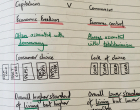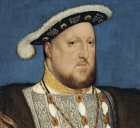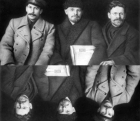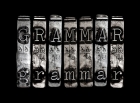Extended Writing
Although many historians now use the medium of television to advance their arguments and interpretations of history, the construction of written accounts remains fundamental to their craft. It also lies at the heart of current assessment systems, which means that young people similarly need to be able to create effective historical accounts of different kinds. The quality of students’ writing depends on the processes of selection and organisation as well as on effective communication within the appropriate genre, and the materials in this section deal with all three dimensions. Read more
-

Film: What's the wisdom on... Extended Writing
ArticleClick to view -

‘Weaving’ knowledge
ArticleClick to view -

What’s The Wisdom On... Extended writing
ArticleClick to view -

Deepening Year 9’s knowledge for better causation arguments
ArticleClick to view -

‘One big cake’: substantive knowledge of the mid-Tudor crisis in Year 7 students’ writing
ArticleClick to view -

The mechanics of history: interpretations and claim construction processes
ArticleClick to view -

Triumphs Show: Making their historical writing explode
ArticleClick to view -

Training for the marathon: history at Michaela
ArticleClick to view -

‘I need to know…’: creating the conditions that make students want knowledge
ArticleClick to view -

From road map to thought map: helping students theorise the nature of change
ArticleClick to view -

'I feel if I say this in my essay it’s not going to be as strong’
ArticleClick to view -

Historical scholarship and feedback
ArticleClick to view -

Effective essay introductions
ArticleClick to view -

New, Novice or Nervous? 164: Constructing narrative
ArticleClick to view -

History as a foreign language
ArticleClick to view -

Does the grammatical ‘release the conceptual’?
ArticleClick to view -

Using nominalisation to develop written causal arguments
ArticleClick to view -

Using Google Docs to develop Year 9 pupils’ essay-writing skills
ArticleClick to view -

New, Novice or Nervous? 159: Writing history essays
ArticleClick to view -

Pipes's punctuation and making complex historical claims
ArticleClick to view

